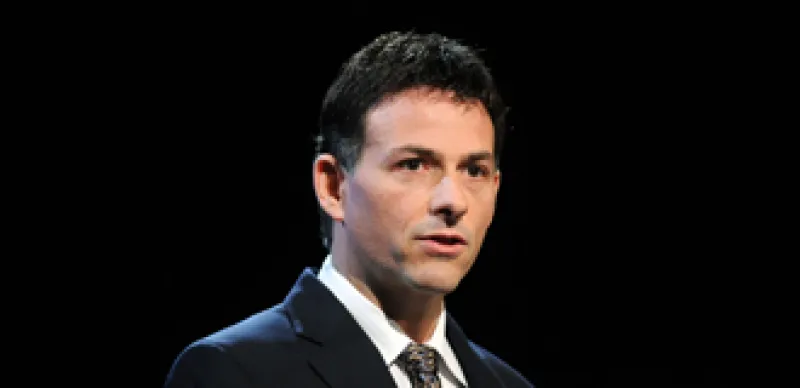David Einhorn’s Greenlight Capital — which has one of the best risk-adjusted returns among hedge funds — was up 4 percent in December and 11 percent for the year, matching the return for the Dow Industrials but lagging the S&P 500, which finished up 13 percent for the year. At year-end, his largest disclosed long positions in his investment portfolio were Arkema, Ensco, gold, Pfizer and Vodafone Group. At the end of the third quarter, he disclosed the same top positions, plus CIT Group.
The year-end disclosures were made by Greenlight Re, a Bermuda-based reinsurance company of which Einhorn is chairman. His hedge fund firm, Greenlight Capital, manages the majority of the insurance company’s equity capital and premiums.
This actually appears to be the first time in at least 10 years that Einhorn, who manages nearly $7 billion, has failed to beat the S&P 500. In fact, each year he has easily surpassed the performance of the widely followed benchmark. But, this year’s relatively modest return underscores how well Einhorn can play defense and protect capital when he is unsure of where the global economy and markets are headed.
In the first half of the year, Einhorn's three hedge funds were up roughly between 1 percent and 2 percent. At the time he told clients in a letter that he was not sure where the economy was heading and therefore was maintaining a conservative and defensive portfolio, with a small net long position throughout “and have almost entirely avoided the volatility of the schizophrenic market.” He stressed the goal was to create alpha on both sides of the portfolio.
In the second quarter, he created two new funds backed by gold.
Einhorn’s portfolio started to rally with the rest of the markets in the third quarter, with all three of his hedge funds climbing more than 4 percent. At the time, he doubted the Federal Reserve’s quantitative Easing (QE2) would be successful. He felt QE2 would create inflation and financial speculation. He fretted the idea of being net short into a bubble. So, going into the fourth quarter, Einhorn said he remained modestly net long.
Einhorn, who graduated summa cum laude with distinction from Cornell University in 1991 where he earned a B.A. from the College of Arts and Sciences, is a special situations/opportunist who is best known for his short sale of Allied Capital, which he chronicled in detail in his book "Fooling Some of the People All of the Time."
A few years ago he was obsessed about not having his photo published. But these days he is a media hound, frequently appearing on CNBC and speaking at conferences.







